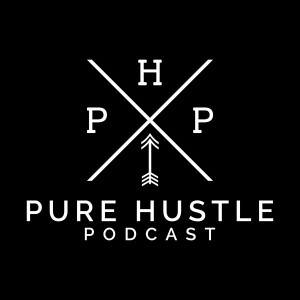

20VC x SaaStr Is Back!! Elon’s $1 Trillion Pay Package, OpenAI’s $10B Secondary, Sierra’s $10B Valuation & The Great AI M&A Wave
We're back on 20VC + SasStr with Harry Stebbings, Jason Lemkin, Rory O'Driscoll, and special guest Jeff Lawson (Founder & Former CEO, Twilio)
Bottom Line Up Front
Rory O'Driscoll: Tesla's trillion-dollar pay package for Elon is a board betting everything on doubling down - they believe without him, the stock drops 75% overnight. It's intellectually coherent but terrifying risk concentration.
Jason Lemkin: We're in the greatest wealth hunt in venture history. Orders of magnitude larger deals are the new normal. A $10 billion company feels "niche" today when we're discussing $100+ billion valuations.
Jeff Lawson: The AI wave creates unprecedented opportunities for infrastructure companies like Twilio that aren't selling seats - no innovator's dilemma. SaaS companies selling seats face existential disruption as AI eliminates 75% of human roles.
Harry Stebbings: Late-stage AI investing has become the rational play for VCs - when only valuation risk remains, even $100M checks into $13B rounds make mathematical sense for portfolio construction.
The Trillion-Dollar Elon Bet: Rational or Reckless?
Tesla's board just approved what could become the first trillion-dollar executive compensation package in history. But is this visionary leadership investment or a high-stakes gamble gone wrong?
The Board's Logic: Double or Nothing
Rory O'Driscoll dove deep into Tesla's 332-page proxy filing to decode the board's thinking. "Compensation is how boards reveal their real priorities," he explained. "Nothing else matters as much. The board wants the Elon bet - they believe they owe him the past and they're betting on him for the future."
The package's operational metrics tell the story: Tesla needs to hit $400 billion in EBITDA (four times Google's current profitability), manufacture 20 million cars, deploy 10 million Full Self-Driving systems, and produce 1 million Optimus robots. It's essentially asking Elon to double the existing business while building entirely new categories.
The Downside Protection Theory
Jeff Lawson raised the critical counterpoint: "Maybe this isn't about upside - it's about the downside case. Tesla is overvalued as a car company. If valued purely on automotive fundamentals, it's worth 25% of current market cap. The other 75% is Elon's special sauce."
This creates a prisoner's dilemma for the board. As Rory noted, "If you try to demonstrate resolve and he threatens to walk, you're down 75% next morning. The individual shareholders who voted for this compensation twice want to make this bet, even though it makes my head hurt."
The New Benchmark for Founder Compensation
Jason Lemkin sees this setting a new standard: "This is the new normal for anyone whose board consists of their brother-in-law and other relatives. Almost all my portfolio companies - the founders control the board, not just from a cap table perspective, but from a relationship perspective."
The trend is clear: instead of 2-3% top-ups after years of struggle, founders are now getting 7-8% packages tied to massive outcome targets of $10-100 billion valuations.
Ramp Hits $1B ARR, Brex at $700M: AI Tide Lifting All Boats?
Two major fintech announcements dominated the week: Ramp crossing $1 billion ARR and Brex hitting $700 million ARR with 50% growth. But are these isolated successes or signs of broader market strength?
The AI Money Flow Effect
Jason Lemkin argues it's the latter: "The AI boom is filtering further down the stack. We're seeing it in Broadcom, Cisco - where our grandpa learned to be an engineer. If you're a B2B company seeing nothing from AI, you get an F. There's so much money flowing through this system."
The fish food metaphor resonated: "It's floating down to where it's dark in the ocean now. It's embarrassing if you can't get any of it."
Financial Services vs. Software Valuations
Rory O'Driscoll provided clarity on how to value these hybrid companies: "They have the margin profile and core dynamics of financial services but the growth rate of software companies. Once growth slows, they'll be valued just like AmEx. The growth is what's saving them."
Jeff Lawson offered the infrastructure perspective: "There's money out there, and it's got to go into some bank. Are they winning market share from legacy companies? Part of it. But during the mobile boom at Twilio, we had customers spending millions who didn't make it - that revenue went away and had to be replaced."
Sierra's $10B Valuation: Bubble Territory or Brilliant Bet?
Brett Taylor's Sierra commanding a $10 billion valuation at $100 million ARR (100x multiple) sparked intense debate about AI valuations and whether we're seeing rational investing or complete market detachment.
The Generational Talent Premium
Jason Lemkin made the bull case: "If Scale was for sale for $28 billion, Brett's got to be worth $56 billion. This is a generational guy who turned down being co-CEO of Salesforce to do this. You get everything - the ex-CTO of Salesforce and Facebook, his team, and a potential category leader."
Rory O'Driscoll walked through the investment logic: "Is there a category that can support a big winner? Customer support is the number one AI use case outside coding. Are they going to be a winner? Clearly one of a small number with a great position. The only question left is: are you getting paid for the risk?"
The Portfolio Math
Harry Stebbings questioned the concentration: "Neil Mather is probably putting 10% of his fund into this next check. That's notable given the percent of his fund this represents."
Jeff Lawson provided founder perspective: "When I start a company, that's 100% of my capital allocation - for my life, time, bank account, everything. Don't say you're brave putting 10% of the fund into one deal when the founder is putting 100% with no way out."
Customer Support: The Perfect AI Use Case
The consensus emerged around customer support being ideal for AI disruption. As Rory explained: "You have lots of people answering phone calls and emails. You can do 70-80% with AI. It saves money on a cost center. This is going to happen."
Kleiner Perkins' $100M Anthropic Bet: Logo Deal or Smart Money?
Kleiner Perkins investing $100 million into Anthropic's $13 billion round at a $183 billion valuation raised eyebrows as their first model provider investment.
The "Logo Deal" Debate
Jason Lemkin initially called it a logo deal: "You can't walk into LP meetings without Anthropic or OpenAI on the website." But deeper analysis revealed more complexity.
Rory O'Driscoll pushed back: "I don't think anyone does a $100 million logo deal. When you run the math, one of two things will happen: either the fastest slowdown in history in the next two years, or if this trajectory continues, this round will work."
The Evolution of Venture Capital
The discussion revealed how venture capital has fundamentally changed. Jason noted: "This isn't venture capital as we knew it. Venture capital today is 20% old school and 80% late-stage growth investing that would have been Fidelity."
Jeff Lawson quoted Gloria Swanson: "I didn't leave Hollywood. Hollywood left me. This is venture capital today."
Risk-Adjusted Returns in AI
Harry Stebbings made the mathematical case: "When only valuation risk remains, you're putting $100 million in and potentially getting $300 million back. That feels like an easier way to make money than being in the trenches in the seed round."
OpenAI's $10B Secondary: 1,000 New Millionaires Hit the Market
OpenAI's unprecedented $10 billion secondary sale creates the largest private liquidity event in history, potentially minting over 1,000 new millionaires in San Francisco.
Historical Context and Market Impact
Jeff Lawson recalled similar dynamics: "I remember feeling this way before Twitter's IPO. I was looking for our first house and thinking I had to buy before the IPO because everything's going to go nuts."
Rory O'Driscoll provided perspective: "If this were a public company worth half a trillion dollars, 20% held by management means $100 billion. People selling 10% to diversify is entirely rational. It's only anomalous because it's private."
The Recruiting Arms Race
Jason Lemkin highlighted the competitive implications: "The impact on recruiting is so much bigger this generation. If you're running a boring B2B company doing triple-triple-double-double, even 36 months ago you were S-tier. Today, you're not going to get engineering talent when everyone's making eight figures."
Jeff Lawson offered historical perspective: "It's like asking Jim Farley from Ford how he recruited developers during the teens when they could have worked at Twitter and Facebook. Maybe the key is getting out of Silicon Valley."
Anthropic's $1.5B Author Settlement: Setting Legal Precedent
Anthropic's $1.5 billion payment to authors for copyright infringement established important legal boundaries for AI training data.
The Legal Framework
Rory O'Driscoll analyzed the court ruling: "The judge said if you bought the book and paid $15, using it for training is legal. If you downloaded from pirate sites without paying, you get fined $3,000 per book. It's fairly coherent - 500,000 books at $3,000 each."
The precedent is clear: AI companies must purchase content for training rather than downloading from pirate sites. "This wasn't cutting corners," Jason noted. "This was pure piracy - going to Pirate Bay for books."
Future Implications
The ruling suggests a path forward: legitimate content licensing for AI training. As Rory explained, "There will be a corpus available where someone has bought 500,000 books, scanned them, creating a legally compliant dataset for training."
The Great Corporate AI Investment Wave
From ASML's $14 billion investment in Mistral to Atlassian's $610 million acquisition of Browser Company, corporate America is making aggressive AI bets.
ASML's Mysterious Mistral Investment
The semiconductor equipment giant's investment in the French AI company puzzled observers. Jeff Lawson explained the corporate cash dynamics: "When you're generating massive cash, it's orphaned on your balance sheet. You can't hire 1,000 engineers without hurting EPS. But swapping one asset for another can be essentially free if it doesn't decline."
Rory O'Driscoll suggested European sovereignty concerns: "Non-US regions feel the need for local champions. It's the AI version of defense equipment - Europeans make weapons they have no business making from an economies of scale perspective because they don't want to rely on Americans."
Atlassian's Browser Company Acquisition
The $610 million cash acquisition sparked debate about corporate desperation versus strategic vision.
Jeff Lawson was skeptical: "The thesis of needing a different browser for work didn't resonate with me. I'm not sure there are enough upsides to change behaviors."
Jason Lemkin saw it as symptom of broader urgency: "Everyone feels like they have to make a play. Sometimes when you're itchy, you might not make the ideal investment."
The SaaS Disruption Imperative
Jeff Lawson delivered perhaps the most important insight of the discussion: "Any SaaS company today is primed for disruption because AI will decimate their seat base. AI will do the jobs people are sitting there doing in Atlassian products today."
His advice was direct: "I would skate directly there and say: what is the job humans are doing in Atlassian products, and here's the AI version of that. That's what I would be doing."
The Developer API Evolution
Jeff Lawson shared his framework for successful developer companies, identifying only three categories that achieve breakaway revenue:
Business Development as a Service
"Developers can't open bank accounts or strike deals with AT&T on behalf of their company. But with Twilio, Stripe, AWS, you can engage in business relationships you weren't able to do previously."
Capex as a Service
"A developer can't spend $10 million to build a data center, but they can put it on a credit card. AWS and Google Cloud fit here."
Algorithm as a Service
"The algorithm must be so complicated that developers say 'I'm not smart enough to figure that out.' I used to only put DynamoDB here - infinite scaling databases are so hard. Now I'd put inference in that category, except it's becoming open source."
The framework explains why many developer tools struggle: "Developers take your cool thing as a challenge. You're saying they can't build what you built. Especially when it gets to meaningful revenue - if you're paying $5 million a year, developers think they can save the company money by recreating it."
The Fraud and Ethics Discussion
The arrest of IRL's CEO for fraud prompted discussion about startup ethics in the current environment.
The Enforcement Perspective
Jason Lemkin advocated for stronger consequences: "Venture rounds are getting done on Saturdays. Diligence isn't even being attempted. The best control would be if more founders who committed fraud went to jail."
He continued: "There's no consequence to standing up at a top accelerator saying you have millions in revenue when it's not there. If a few more people went to jail, it would have the proper chilling effect."
The Due Diligence Responsibility
Jeff Lawson offered a more nuanced view: "Whenever I read these fraud stories, I've never heard of the companies. If I've never heard of them as a real human being, maybe there wasn't much real behind them."
Rory O'Driscoll balanced both perspectives: "The commission of crime is on the 22-year-old who lies. But the 40-year-old running money who's sophisticated owes the system a duty of care to check this stuff and not get carried away."
Key Takeaways
On Founder Compensation
* Elon's package sets new benchmark for founder-controlled boards
* Risk concentration reaches extreme levels with $1 trillion packages
* Boards face prisoner's dilemma: pay up or risk 75% stock decline
On AI Market Dynamics
* Infrastructure companies positioned better than SaaS (no innovator's dilemma)
* Customer support emerges as perfect AI use case
* Late-stage AI investing becomes mathematically rational for VCs
On Market Valuations
* 100x ARR multiples justified for generational talent in large markets
* Geographic sovereignty concerns drive irrational investments
* Corporate cash seeking AI exposure creates acquisition opportunities
On Industry Evolution
* Venture capital fundamentally changed: 80% late-stage growth investing
* Developer API success requires business development, capex, or algorithm as service
* SaaS companies face existential threat from AI eliminating seat-based revenue
Most Quotable Moments
Rory O'Driscoll
* "Compensation is how boards reveal their real priorities. Nothing else matters as much."
* "The board wants the Elon bet. If they try to demonstrate resolve and he threatens to walk, you're down 75% next morning."
* "I didn't leave Hollywood. Hollywood left me. This is venture capital today."
Jason Lemkin
* "This is the greatest wealth hunt in venture history. A $10 billion company feels 'niche' today."
* "If you're a B2B company seeing nothing from AI, you get an F. There's so much money flowing through this system."
* "Venture rounds are getting done on Saturdays. Diligence isn't even being attempted."
Jeff Lawson
* "Don't say you're brave putting 10% of the fund into one deal when founders are putting 100% with no way out."
* "AI will decimate SaaS seat bases. AI will do the jobs people are sitting there doing in Atlassian products today."
* "You don't start companies to make money. You start companies because you think the world needs what you're building."
Harry Stebbings
* "When only valuation risk remains, valuation risk expands to fill like a vacuum."
* "We're in a weird world where you can't buy the things that are great. You can't buy Sierra."
* "If you're not in, you can't win. But oh my god, it's hard to know which bets to make."
This is a public episode. If you would like to discuss this with other subscribers or get access to bonus episodes, visit cloud.substack.com
More Episodes
All Episodes>>Create Your Podcast In Minutes
- Full-featured podcast site
- Unlimited storage and bandwidth
- Comprehensive podcast stats
- Distribute to Apple Podcasts, Spotify, and more
- Make money with your podcast












